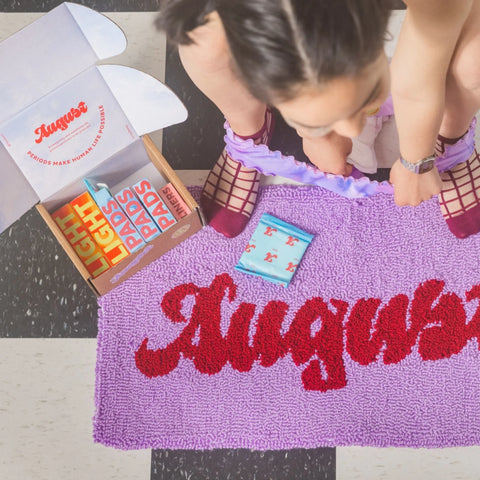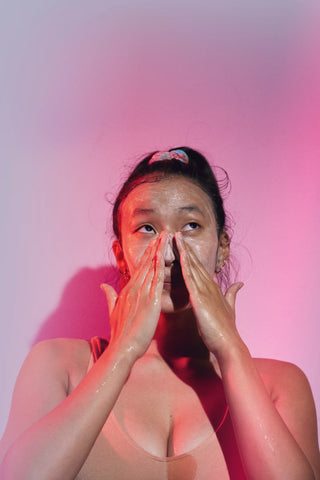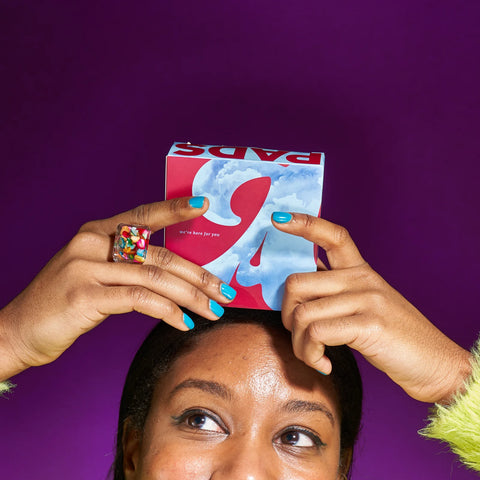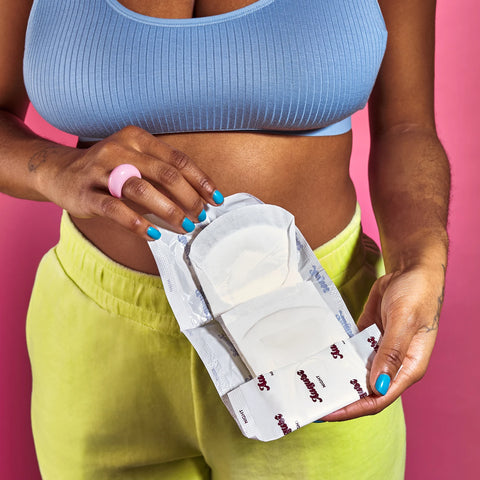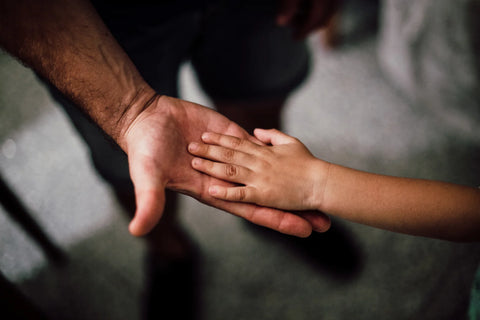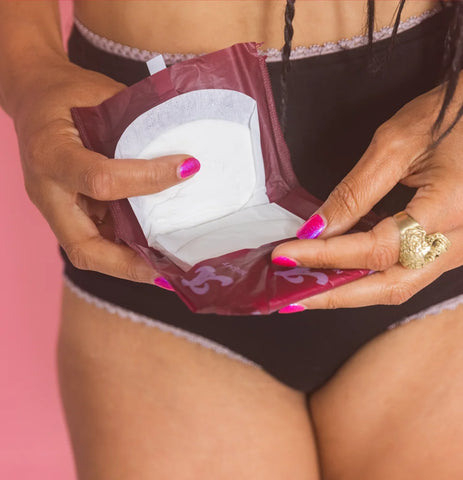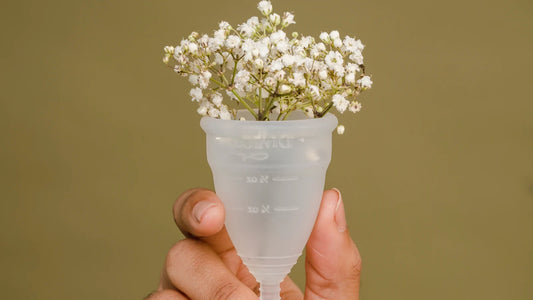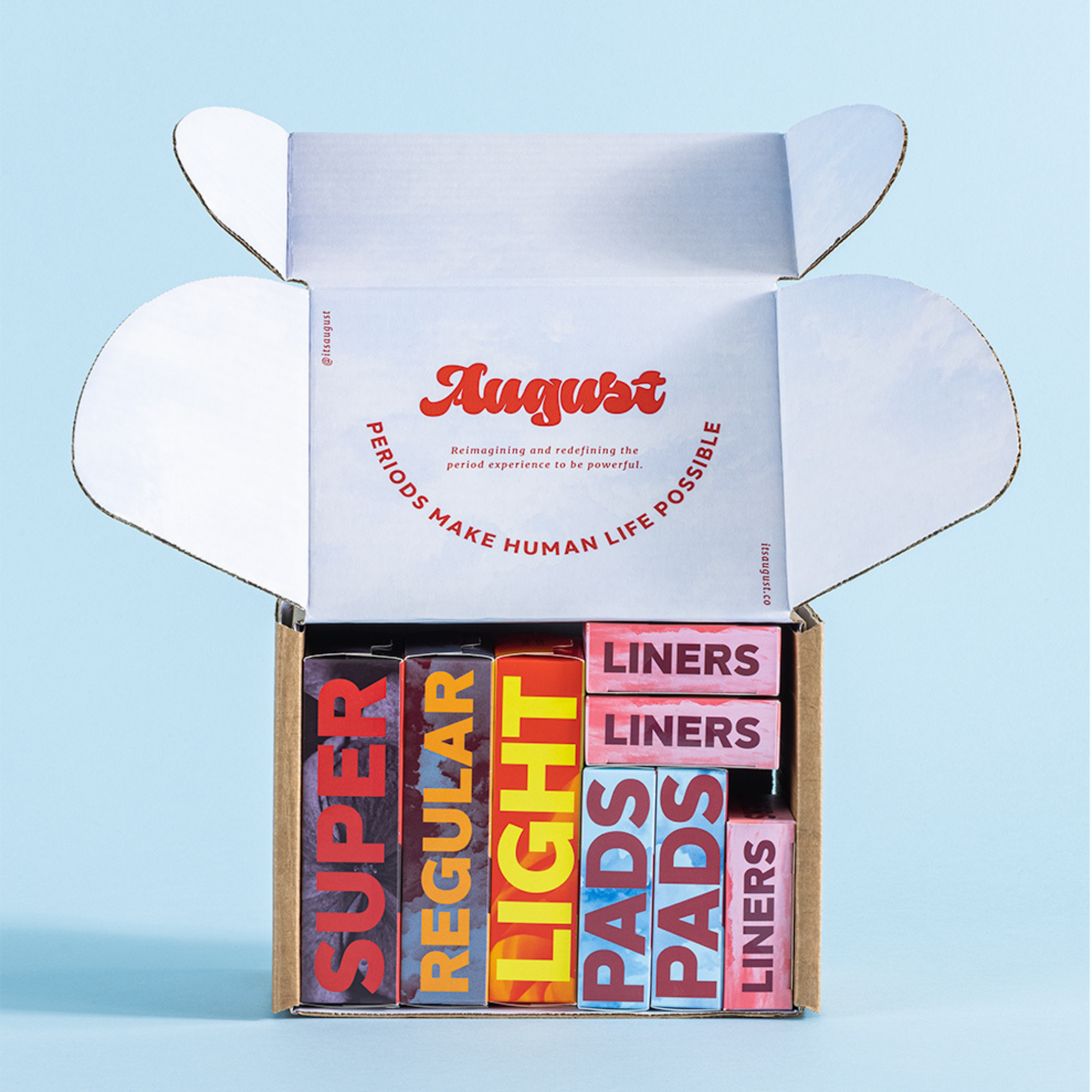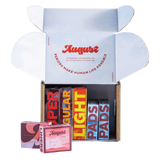Advice for getting your period for the first time!
It may be true that the average age for someone to get their first period is age 12 but did you know that some people with a uterus get their first period as young as 8 YEARS OLD?!
THAT is why we post the content we do on all our social media platforms, despite being flagged for “minor safety” – AHEM – Tiktok…
What is a period and why do I get it?
First of all, where menstruation happens: the uterus.
The uterus is a hollow muscular organ located in the pelvis between the bladder and rectum.
Inside the vagina, there are ovaries that produce the eggs that travel through the fallopian tubes. Once the egg has left the ovary it can be fertilized and implant itself in the lining of the uterus. The main function of the uterus is to nourish the developing fetus prior to birth.
Menstruation happens when that egg fails to implant itself. As a result, the uterine lining sheds itself, along with blood.
At a microscopic level, period blood is a combo of blood and endometrial lining.
In addition to the monthly bleed, hormonal changes affect things like your appetite, mood, skin texture and more! But don’t get too bogged down about all that because above all else, August is here to remind you that periods are POWERFUL – they literally make human life possible!
Here are 7 signs that your period is coming + a protip for each symptom!

Want to chat with other young menstruators? Join our #InnerCycle community!
1. Breast tenderness
One of the most obvious signs that you’re about to enter puberty: growing and swelling of your chest area, which may cause some pain and tenderness.
PROTIP: During your period, try to wear comfier clothes that aren’t as tight on your chest.
2. Discharge
So you’ve noticed some creamy goo on your underwear at the end of the day…
Healthy discharge is clear or white, has a mild odor, and can change thickness based on where you are in your cycle.
Our vaginal discharge is unique to our bodies and should remain relatively the same for most of your life, up until you become pregnant or hit menopause that is. Which means you should only be concerned if it deviates from the norm.
Consider yourself lucky to have a natural health check and cleaning method for your vagina. Discharge helps clean and moisten the vagina as well as prevent and fight infection
PROTIP: Carry a box of August liners on you at all times in case of discharge so you can protect your underwear from pH stains.
3. Cramps, lower back pain, or bloating
As your uterus prepares itself to shed the endometrial lining + menstrual flow, the body releases chemicals called prostaglandins which cause an inflammatory response that causes the uterus to contract –– these are cramps.
Cramping typically starts the day before or the day bleeding begins and – spoiler alert – cramps are one of the symptoms that tend to come back every month, throughout your menstruating years.
Period pains can feel like a dull ache of pain throughout your entire body, or even sudden, sharp pains on certain parts of your body.
Something that your health class teacher likely won’t tell you though, is that pain is NOT normal. Regardless of whether it’s ‘severe’ or ‘mild’. So, if you are having ongoing pain or any other irregularities, check in with your doctor because there may be an underlying period disorder that you can catch onto early!
PROTIP: Light body movement or exercise has been proven to reduce cramp pain and even mood disturbance! If you don’t like the feeling of a pad while exercising, try an August tampon!
4. Moodiness
The menstrual cycle is driven by hormonal changes. These have different effects on different people. In some menstruators, moodiness is a side-effect of these hormonal changes.
PROTIP: Be gentle with yourself and, leading up to and during your period, try to make time for activities that you enjoy doing!
5. Wondering why you feel lazy on your period?
Fatigue is one of the most common PMS symptoms.
It’s completely normal to feel a lack of energy shortly before your period. This is linked to a lack of serotonin (a brain chemical that can affect your mood).
Fluctuating serotonin levels can lead to a major dip in your energy level, which can also affect your mood. Your fatigue may also be caused by sleep issues linked to your physical premenstrual symptoms (like bloating, cramping, body temperature increase, and headaches) that can keep you up at night.
PROTIP: Unapologetically prioritize sleep and rest leading up to, and during your period!
6. Headaches
Estrogen levels dropping – which happens before your period – has been associated with headaches and sometimes even migraines.
PROTIP: Drink lots of water and, if it’s really bothering you, try over-the-counter headache relief!
7. Acne
Yet another thing that is affected by your hormones rising and falling.
As your hormones fluctuate before your period, your skin can become more oily. Clogged pores result in acne breakouts!
PROTIP: Wash your face and stick to foods that aren’t oily.
Before you take off, here are a few more points about what to expect as your menstrual cycle evolves…

What is a normal period?
‘Normal’ looks different for everyone – especially in your first few years of menstruating when it is very common to have an irregular period.
Any irregularities after that should be monitored and checked out by a doctor just to make sure everything is okay. Sometimes, it is just caused by weight loss, change in appetite, or exercise habits.
The length of a menstrual cycle can vary between menstruators, but on average, they're usually between 21 and 35 days.
As you get older your cycle length and flow might change so tracking your menstrual cycles can help you understand what a 'normal' cycle looks like for your body.
How much blood should I expect to lose on my period?

An average person loses about 111mL of menstrual fluids during their period (only about 30-40mL – 3-5 teaspoons – of that is blood).
60 mL of blood itself is considered a heavy flow and if you are losing more than 80 mL, you are advised to see a doctor.
What is menstrual hygiene?
Check out our full description HERE!
But remember the following key points:
- Keep your hands clean when changing your period products!
- Change your products often
- And continue to be curious about your body and reproductive health!
And the most IMPORTANT protip before your first period comes…
Make sure you’re stocked up on August’s sustainable, gender-inclusive period care!





